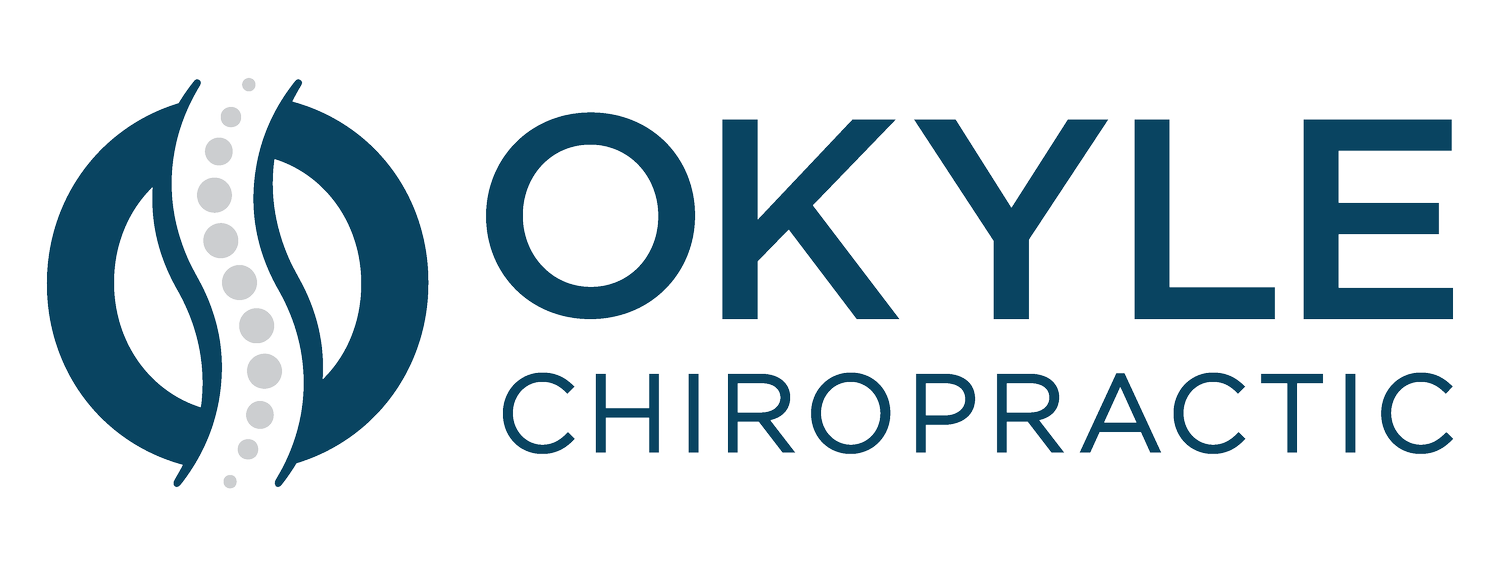NECK OR NERVE? Understanding causes of arm pain & numbness
If you’ve ever experienced tingling, numbness, or pain radiating down your arm, you’re not alone. It’s a common symptom and it can be both alarming and disruptive to your daily life. The challenge? These symptoms can stem from several different sources, and understanding where the problem is coming from is key to getting relief.
So, is it your neck? A pinched nerve? Or something else entirely? Read on to learn what may cause these issues.
How the Neck Can Cause Arm Pain
Your cervical spine (neck) is made up of vertebrae (C1–C7) that protect the spinal cord and give rise to nerve roots that exit between the vertebrae. These nerves travel into the shoulders, arms, hands, and fingers — controlling sensation, strength, and movement.
When a nerve becomes irritated or compressed in the neck, it can cause symptoms anywhere along its path — a condition known as cervical radiculopathy. Common signs of cervical radiculopathy include:
Pain radiating from the neck into the shoulder, arm, and/or hand
Numbness or tingling in the fingers
Weakness in the arm or grip strength
Pain worsened by turning or tilting the head
What Causes a Pinched Nerve in the Neck?
Several issues in the cervical spine can irritate or compress a nerve root:
Herniated or bulging disc
Degenerative disc disease
Bone spurs or arthritis
Spinal misalignment or joint restriction
Postural strain (typically from tech neck or prolonged sitting)
Sometimes, even tight muscles or inflammation near the nerve root can mimic nerve compression symptoms.
Other Potential Sources of Arm Symptoms
Not all arm pain or numbness originates in the neck. Other potential causes include:
Thoracic outlet syndrome (compression of nerves or blood vessels between the neck and shoulder)
Carpal tunnel syndrome (compression of the median nerve at the wrist)
Peripheral neuropathy (often due to diabetes or other systemic issues)
Shoulder injuries (rotator cuff, bursitis, or impingement)
Myofascial trigger points in the neck, shoulder, or forearm muscles
A thorough evaluation by a licensed and experienced provider is crucial to pinpoint the true source.
How Chiropractic Care Can Help
Chiropractors are trained to assess spinal health, joint function, and nerve involvement to determine the root cause of your symptoms. If the problem is coming from your neck, here’s how chiropractic care may help:
Chiropractic Adjustments
Restoring motion and alignment in the cervical spine can relieve pressure on irritated nerves, reduce inflammation, and restore proper nerve signaling.
Soft Tissue Therapy & Trigger Point Release
Chronic muscle tension — especially in the upper trapezius, levator scapulae, or scalene muscles — can mimic nerve pain. Targeted manual therapy helps release these areas, improving circulation and reducing pain.
Instrument-Assisted Soft Tissue Manipulation (IASTM)
Using specialized tools, scar tissue and muscle adhesions are both able to be mobilized that may be affecting nerve mobility and biomechanics.
Postural Retraining & Rehab Exercises
Corrective exercises may be prescribed to improve neck and shoulder posture, stabilize weak areas, and reduce recurrence.
When to Seek A Professional Evaluation
If you’re experiencing:
Persistent arm pain, tingling, or numbness
Symptoms that worsen with neck movement or posture
Weakness in your hand, grip, or arm
Difficulty buttoning buttons
Difficulty with balance
Bowel or bladder dysfunction
Chiropractors can determine whether your symptoms are spinal in origin, refer for imaging if needed, or co-manage your care with other healthcare providers if the issue lies outside the musculoskeletal system.
Any questions? Feel free to reach out to our office via phone or text: (310) 880-9663. Happy healing!
Disclaimer: The information provided on this chiropractic blog is for general informational purposes only and is not intended as a substitute for professional medical advice, diagnosis, or treatment. Always seek the advice of your physician or another qualified health provider with any questions you may have regarding a medical condition. Never disregard professional medical advice or delay in seeking it because of something you have read on this blog. If you think you may have a medical emergency, call your doctor or 911 immediately. Reliance on any information provided by this blog is solely at your own risk.
